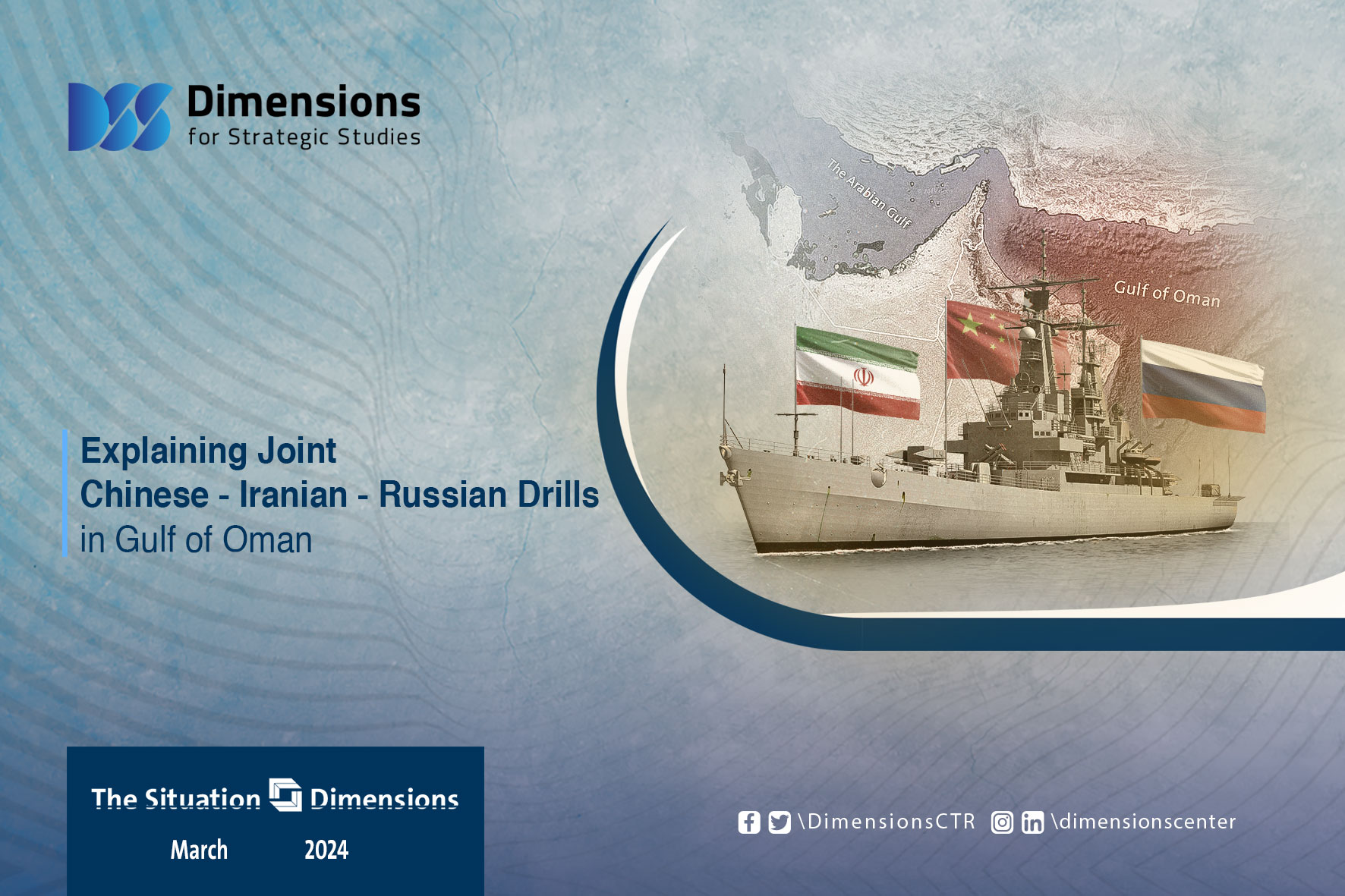
Explaining Joint Chinese - Iranian - Russian Drills in Gulf of Oman
2024-03-142254 view
China, Russia and Iran have launched joint naval maneuvers in the Gulf of Oman, near the Arabian Gulf - a strategic waterway critical to global trade. The “Maritime Security Belt 2024” drills come amid rising international tensions, punctuated by ongoing attacks by Houthi militants in Yemen against commercial vessels in the Red Sea. This raises questions about the drills’ political implications and the message they convey.
Participants and Objectives:
More than 20 ships, support and combat vessels from the three countries, as well as naval helicopters, are participating in the drills, which, judging from the context and accompanying official statements, have several aims:
· Bolstering maritime security in the region: As piracy and terrorism escalates in international waters, the three countries are seeking to demonstrate their ability to secure maritime navigation and protect global trade.
· Expanding military co-operation: The drills aim to enhance military cooperation between the three countries and allow them to share military expertise and technologies.
· Demonstrating military capabilities: The maneuvers are a show of force and a warning to other international powers, especially the United States.
· Reinforcing multipolarity: Tehran, Moscow and Beijing are seeking to use the exercises to highlight the existence of other global powers capable of counterbalancing U.S. influence.
By parading its international alliances, it appears that Iran is seizing the opportunity provided by the Gaza and the Houthis’ attacks on shipping in the Bab al-Mandab strait to present itself as an alternative force for securing international trade routes in the region. To this end, it is also able to leverage its status as the closest state to the exercises and its influence over pro-Iran militant groups in the region, notably the Houthis. This is in contrast to the U.S. and Britain, whose attacks on the Yemeni militants have failed to halt or deter its attacks.
Iran, Russia and China are thus presenting themselves an alternative to secure the region, in light of the American-British-European draw-down in the region. It is worth noting that the major European powers have chosen a separate path, refraining from taking part in the U.S.-British strikes.
Thus, Iran is using various means to exploit the opportunity presented by Israel’s war on Gaza to improve its own international and regional positioning, and to adjust the international balance of power.
As such, it is able to leverage the common interests it shares with Russia and China, especially after the September announcement of the India-Europe Economic Corridor, which would be a competitor to the Chinese Belt and Road Initiative, and could also contribute to the transport of gas to Europe as an alternative to Russian energy.





